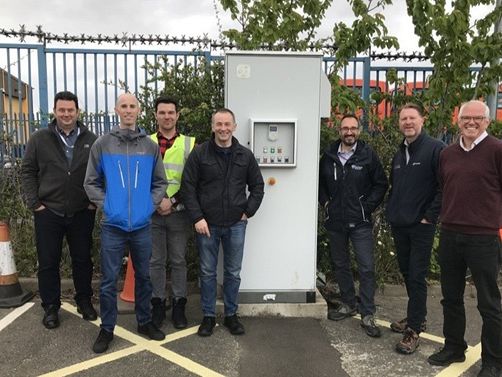This year we have been awarded two sustainability accreditations.
We’ve been working toward becoming a Fairtrade University with the NUS Fairtrade Award since 2019, and after a recent audit of our work we’ve been awarded Fairtrade University status until June 2024!
We also started working toward the Food Made Good rating in 2021/2022, and we’ve now been awarded our first star with a score of 55%, which covers our College Canteens and Cafés.
Food Made Good is the world’s largest food service sustainability programme which assesses sourcing, society and environment, and we’ve got off to a great start in improving the eco-credentials of our food services. We’re not going to stop there, and we’re now working toward achieving 2 stars by 2025.
Find out more in our Impact Report.

Exploring new technologies
Members of our Energy and Sustainability Team and Estates and Facilities have also been on a number of site visits to see different renewable technologies in action.
The University is currently developing a new Carbon Management Strategy that will involve increasing the amount of renewable energy generated on campus, and with each visit our colleagues are learning new ways to approach sustainability.
Heating our homes
We were lucky enough to visit Northern Gas Networks' flagship project this summer. Hydrogen Home are the UK's first houses fuelled by hydrogen.
The two properties look no different to any other, apart from their 100% hydrogen powered boiler, gas cooker and fireplace.
When burnt, hydrogen doesn't produce any carbon emissions. This means that, when powered by 'green' hydrogen, these systems could form a zero-carbon cornerstone of the UK's Heat and Buildings strategy in the next 10-20 years.
Interested in learning more? Email hydrogenhome@northerngas.co.uk to arrange your own visit!

Colleagues visiting Northern Gas Networks’ Hydrogen Home
Learning new ways forward
Colleagues visited the Lanchester Wines’ facility in Gateshead, which uses a heat pump to recover heat from disused coal mines. The company also generates its own green electricity from several wind turbines and solar photovoltaic panels.

